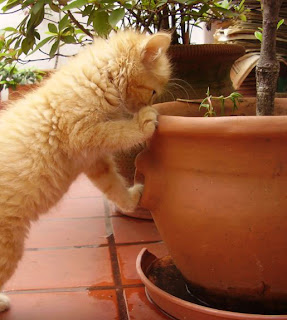
FROM DAVID:
Visualize: you're driving a car and you come to a stop sign. You stop at the sign a second or two before a man driving the car coming from the opposite direction half-stops then turns left right in front of you just as you start to go. You look to catch glance at his face, but it's too late. That faceless person nearly crashed into you! How do you see yourself reacting in a situation like that?
Jumping to conclusions is easy to do. Forming judgments based on those assumptions is easy to do, too. But trusting our guesswork is risky - after all, when we assume, we don't actually know. And from a state of unknowing, how we act/react is a neat viewfinder into how we operate. I love exploring why people, including me, do what they do. We're all these seriously high-tech machines (or high-nature, if you prefer) -- infinitely complex, intelligent, but we did not come with documentation or instructions. Shouldn't that mean that we know what we're doing, intrinsically, as our core functionality? Yet we're making up answers about why we exist as we go along. There are no outcomes we can predict. We are staged to learn. We are essentially lost, yet we are at home. Really, given our context, there is potential for anything to provoke and deserve our curiosity!
When digesting the word, "curious", my brain tends to fire down the neural pathway that leads to "George". With a little more consideration, it turns towards the idea of curiosity being synonymous with exploration. Digging deeper, I think that being curious about someone or something is a way of connecting, even loving. I remember the first few Option Process® Dialogues I did in the mentor role. Even with a cheat sheet of about 10 categorized questions to ask the person in front of me depending on where they left off in their exploration, I didn't know what to ask. I felt a little panicky - mostly, out of a fear of NOT asking the "right" question. I imagined that the perfect question would allow the explorer to go straight to their beliefs, solve their problem with their own beautiful answer. (You know, like watching butterflies and stardust in the sunlight.) I also judged myself for not being immediately successful with this simple and powerful process. With some steady practice in being a mentor, I began to see that being totally curious about the explorer, including how they operate in their world, helped me to feel capable as a mentor - a loving and curious person.
Let's say you find out that the reason that driver dissed you at that stop sign was that he was en route to the hospital where his wife was giving birth and was so focused on getting there, he didn't perceive that you arrived at the intersection first. Does that change your reaction? If it does, generalize that to the people in your closest relationships and imagine for a moment how being more curious about their actions, the meaning of their words, even body language, might change those relationships. Replacing assumptions with curiosity has changed how I see people that I thought I knew intimately. Of course, being curious doesn't mean harassing the people in our lives with rounds of clarifying questions, but coloring in our understanding with naturally flowing, non-judgmental, inquiry. Inquisitiveness does not necessarily beget inquisition! It creates an opening to love and learn where there is a tendency to fight or flee.

thats a great post David! I love reading your blogs!!! I find myself thinking about this alot while I am driving. Many times before I take off on my drive I make my intention to not judge the other drivers. I have found that I do that much more than I had thought. What a great way to practice "Love First, Act Second."
ReplyDeleteAs always, thanks for sharing.
Love, Jamie